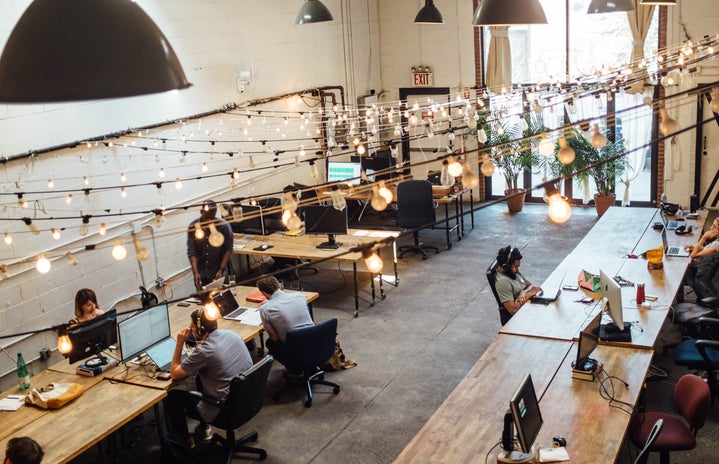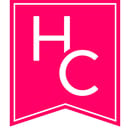Name: Sabina Nussipov
Year: Fourth Year
Major: Public Health Sciences
What inspired you to choose this major?
I started as Biology major, and even though I was trying to make it work, is was not working. I was not being honest with myself and overall I did not enjoy it. But, then when I took a Public Health class, it was a new way of thinking. It felt more community based because I was able to ask myself “How do we use our knowledge to help people?” I met Dr. Sammi, my Public Health professor, and as I got to know her better, she was the perfect mentor for me.
In Public Health, the classes are well rounded and you get a global perspective. At one point, my supervisor told me that my heart has to be in it for me to do a good job; you have to feel like you are doing something. I feel that is true because initially as a Biology major I lost perspective as to why I wanted to learn it in the first place. With Public Health the perspective shifted because I was able to think more about how we can help change lives with a more hands-on approach.
What are you involved with on campus?
I am involved with the fraternity Delta Epsilon Mu, and I joined that my second year. It was a really good step for me because it is a professional fraternity so we learn a lot about acquiring professional skills such as how to write formal emails, create resumes, and figure out our career goals. There is also a social aspect to it as well. We are kind of like a family where we plan fun events and do a lot of bonding. I have been able to balance business and personal relationships. Aside from being in a fraternity, I am also a Residential Advisor (RA).
On top of all of that I also do research with Dr. Sammi. The research we do is Public Health research, and we are observing park infrastructures in Garden Grove and Anaheim to create recommendations to the city that will improve the infrastructure and programs to reduce chronic illness. We look at the different demographics and analyze different statistics we gather from our observations. I am learning the dynamics of what is involved in an observational study. The other research I do is with Dr. Kadandale. It is about biology education research where Dr. Kadandale tests exam methods. He wants to test the student’s true knowledge on the subject while also considering different variables such as gender, ethnicity, and GPA that play a part in understanding the whole picture.
You are the RA for the hall Laguna in Mesa Court, why did you decided to become an RA?
The main reason is because I had such a fantastic time my first year. I lived in Laguna (Mesa Court) my first year and I credit Laguna because I met some of my best friends there. Also, my RA was really influential in my life and I still talk to her to this day. I found a home away from home here [in Laguna]. I felt that in my fourth year, I was in a place where I can give that back and create that safe space again. I also wanted the challenge of being an RA because when I put myself in situations that push me out of my comfort zone, I am able to learn the most and grow from my experiences.
Coming in as an RA, I thought I would only be helping freshman, but they have been helping me at the same time. I love serving and I feel there is a purpose in being here every day. I like being the friend my residents need and will look to for advice. It’s an honor to be an RA, and overall it is a unique experience because there is a team of RAs who work together to ensure the freshman are able to transition into college properly.
How are you enjoying being an RA?
First off, I love Laguna. I lived in the hall my freshman year, and initially I was so scared and worried, but eventually it became a home to me. I feel like this year, I am coming back home, and having residents of my own is just like having my friends down the hall. That is the cool aspect of it because it does not happen in the adult word. I love making connections with my residents and with that comes different challenges and rewards. I am able to connect with many different people in a single year. Being able to build relationships and friendships with my residents is one of the biggest rewards. Another RA mentioned this to me and he said, “We are going to leave and graduate, but for the next four years there will people here who will remember you” and the idea is amazing. If we [as RAs] can help shape our residents in a small way, leaving some sort of goodness, or having a part in the foundation of a student here, then a big part of my job is accomplished.
What are your plans after college?
That is one of the scariest questions, but I do have a direction and a goal. The reason I say this is because what I have learned in college is that you cannot plan it to a “T”. You just have to go with the wind, and hopefully take opportunities that are interesting. At the moment, there is an opportunity for a possible internship at the Public Policy Institute of California. Basically they create policies and to do that you have to do research to understand which policies need to be made. This program is a team focusing on the California drought and trying to see what we did right or wrong, and the climate change issues behind it. After we do research, we come up with solutions and also do independent research as interns. I see myself leaning towards policy change in environmental issues because I think environmental issues have a lot to do with the health of the public. A lot of public health issues revolve around environmental health because if you think about it, all humans are dependent on the environment and the resources that the environment has to offer.
Aside from pursuing this internship, I am also thinking of getting my Master’s Degree either in Public Health, Global Health, or Environmental Engineering. I also am considering looking into Global Sustainability and Urban Planning because I feel like with how much we are tearing apart our world, someone has to come in and start planning some sustainable living situations because the way we are doing things now is just not enough.
For the future, I am looking at what I am interested in and how I can serve others.
Where do you see yourself in twenty years?
I would want to be working with environmental issues and public health in a non-profit organization, ideally the W.H.O (World Health Organization). I want to be working on the health systems in Kazakhstan because that is where I am from and I understand the culture and tradition there. Also, a lot of my family members live there. I want to go back to give back to my country. I find it is a country in need and a lot of the times it is overlooked. Going back would allow me to help a country very important to me. As long as I am doing something where I feel needed, I will be satisfied. In any job that I do, I hope my values are not compromised. I hope at that time in my life I am still true to my core values.



